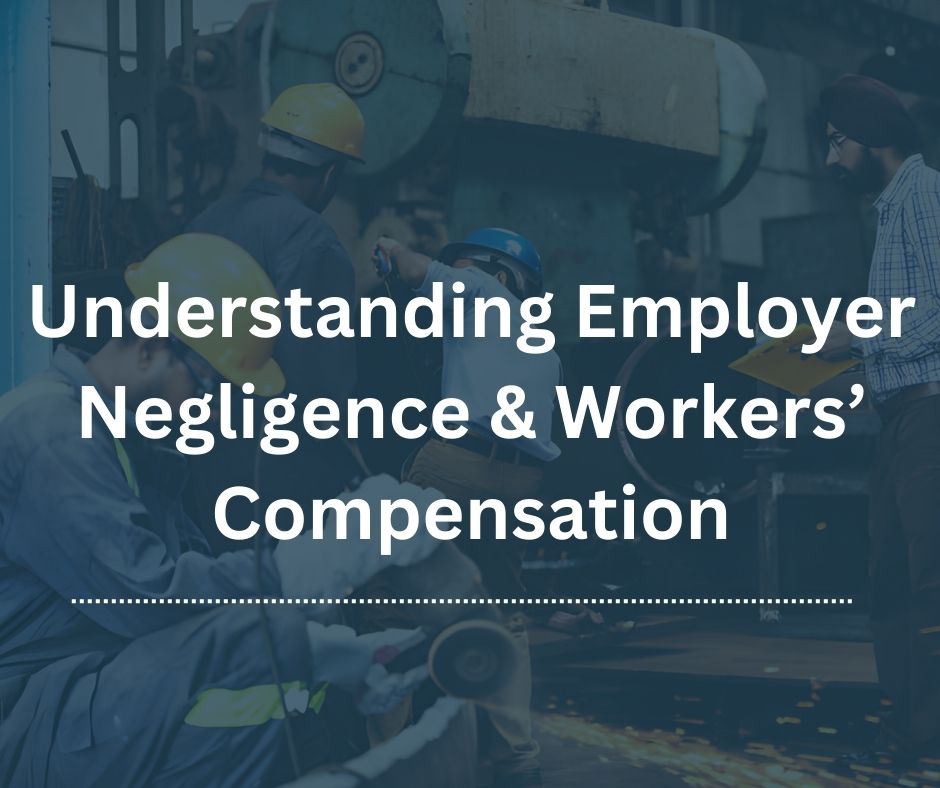
In Arkansas and Missouri, workers’ compensation is typically the exclusive remedy for employees who suffer injuries on the job. This no-fault system ensures that workers receive medical care and compensation for lost wages without the need to prove their employer’s negligence.
Employer negligence lawsuit settlements involve fault-based tort claims, which are generally barred when workers’ compensation benefits apply. However, there are a couple of rare situations where you might have legal grounds to file a personal injury lawsuit against your employer.
Understanding the nuances of these legal options is crucial. While workers’ compensation offers payment for medical expenses and time missed from work, it doesn’t cover the full extent of an employee’s losses or provide compensation for their pain and suffering.
It is typically only possible to receive these damages when clear evidence of wrongdoing goes beyond general employer negligence.
In this post, we’ll look at how to prove employer negligence and what situations allow you to sue an employer directly.
Additional Remedies Beyond Workers’ Compensation in Arkansas and Missouri
In both Arkansas and Missouri, workers’ compensation is the exclusive remedy for workplace injuries, providing medical treatment and wage replacement. This no-fault system doesn’t require you to prove employer negligence, which provides a straightforward process for injured workers. However, there are rare circumstances where you might step outside this framework and pursue a personal injury lawsuit.
Can I Sue My Employer for Negligence in Arkansas or Missouri?
Suing your employer for a workplace injury in Arkansas or Missouri is an exception, not the rule. Legislation in both states aims to protect businesses from the high costs and frequency of personal injury lawsuits. However, you might have a case if your employer’s actions were recklessly negligent or intentionally harmful.
Such extreme misconduct has a substantial burden of proof, typically requiring the plaintiff to highlight the employer’s clear disregard for employee safety. These cases are few and far between and require the skills of an experienced workers’ compensation lawyer to properly pursue.
What Is Employer Negligence?
Employer negligence in the context of workplace injuries refers to scenarios where an employer’s failure to exercise reasonable care directly leads to an employee’s harm. In order to be legally actionable, this negligence must go beyond general mistakes and rise to the level of gross, willful, or intentional.
Gross negligence involves a severe lack of care or reckless disregard for employee safety, significantly beyond ordinary negligence. Willful negligence implies an employer’s deliberate disregard for its employees’ health, safety, and welfare.
Intentional negligence goes a step further, referring to actions where the employer purposely inflicts harm or injury on an employee. In these extreme cases, the usual restrictions of workers’ compensation may not apply.
That’s because workers’ compensation does not provide coverage for intentional acts. These employer negligence lawsuit settlements hold employers accountable for their actions and provide a route for employees to receive compensation that reflects the full extent of their injuries and suffering.
Independent Contractors and Workers’ Compensation Benefits
If you’re an independent contractor, you’re not typically eligible for workers’ compensation. However, if your employer was negligent and caused your injury, you may be able to file a personal injury lawsuit, as you’re not covered under the workers’ compensation system.
In some situations, you might be entitled to workers’ compensation benefits if you were misclassified and should have been considered an employee.
Uninsured Employers and Personal Injury Lawsuits
Employers that fail to carry mandatory workers’ compensation insurance in Arkansas or Missouri might face a lawsuit in the event of a workplace injury. This lawsuit allows you to seek compensation for economic and noneconomic losses. In addition, the employer may face criminal charges for not adhering to the state’s insurance requirements.
Third-Party Lawsuits for Negligence
While workers’ compensation usually bars lawsuits against your employer, it doesn’t necessarily prevent actions against third parties. If someone other than your employer contributed to your injury, such as an equipment manufacturer, you might have grounds for a lawsuit.
For instance, a defective machine part caused your injury. In this case, suing the company for negligence will allow you to pursue compensation for pain and suffering.
Another example involves employees who drive a car as part of their job. If another driver caused the accident, you can pursue a personal injury lawsuit against the at-fault driver. That lawsuit is independent of any workers’ compensation benefits you receive from your job.
Contact a Workers’ Compensation Lawyer at Cottrell Law Office
If you suffered a workplace injury and believe you have a valid employer negligence claim, you must explore your legal options. At Cottrell Law Office, we’re dedicated to helping injured workers navigate the complexities of workers’ compensation and personal injury law. Attorney Wesley Cottrell is well-versed in identifying cases of gross, willful, or intentional negligence by employers.
Don’t let confusion or uncertainty about your rights prevent you from seeking the justice you deserve. Whether it’s pursuing a third-party negligence claim, challenging a misclassification as an independent contractor, or holding an uninsured employer accountable, we’re here to guide you every step of the way. Contact Cottrell Law Office today for a comprehensive evaluation of your case.


